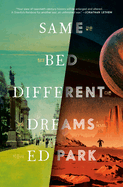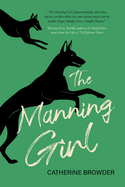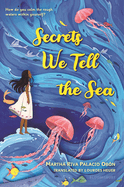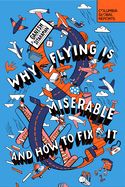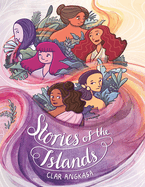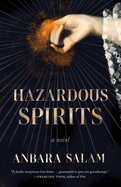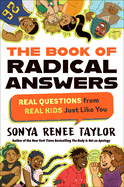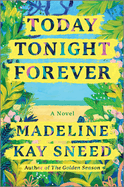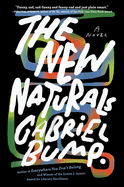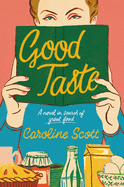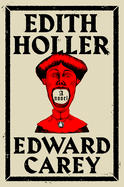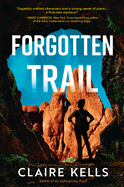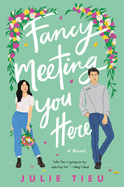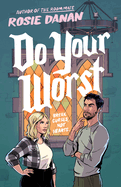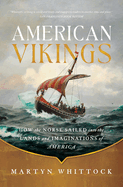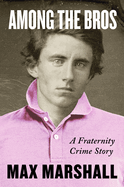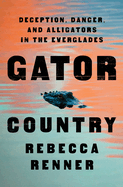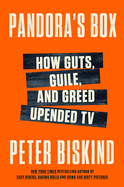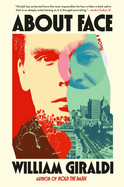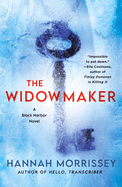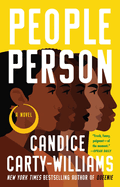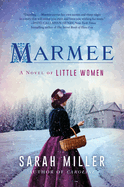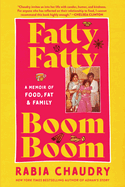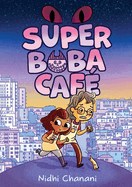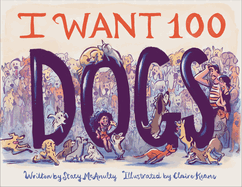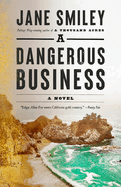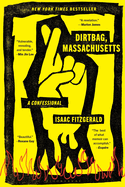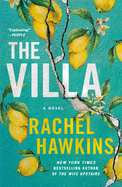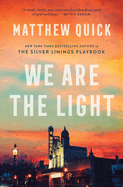Friday, November 17, 2023
Among the novels reviewed this week: Same Bed Different Dreams, a work of "incomparable speculative fiction" by Ed Park, about the history of Korea in the 20th century; The Manning Girl, Catherine Browder's debut novel, "a warmhearted and original reimagining" of George Eliot's Silas Marner; and Anbara Salam's "absorbing thriller" Hazardous Spirits, which follows a couple's tumultuous journey into the spiritualist movement in 1920s Scotland; plus Secrets We Tell the Sea, the Mexican award-winning middle-grade novel by Martha Riva Palacio Obón, a "profound work of magical realism" starring a 10-year-old girl who speaks openly to the sea in a "stunning translation" by Lourdes Heuer.
And don't miss The Writer's Life with Matt Mendez, author of The Broke Hearts, his follow-up to Barely Missing Everything.
Same Bed Different Dreams
by Ed Park
Ambitious readers of all stripes, but particularly those who enjoy superbly written speculative fiction on par with Emily St. John Mandel's The Sea of Tranquility or Haruki Murakami's 1Q84, will delight in Same Bed Different Dreams by Ed Park (Personal Days), a work of skilled plotting, inventiveness, and artful, incisive humor.
Soon Sheen, Park's protagonist, is Korean American and a former writer who now spends his time as an employee of the menacing and ubiquitous tech company GLOAT. "I wasn't clear on what the letters in GLOAT signified. Possibly nothing. Or else many things: the phrase in question ever changing, apt for a company based on change.... Our aim was to maximize click rate and impression time by taking copy through multiple iterations, so that GLOAT could learn to do it better on its own. We were paving the way for our own obsolescence."
Sheen comes into possession of an unpublished work entitled Same Bed, Different Dreams by a Korean writer who may or may not exist. The writer, using the pseudonym Echo, claims to chart the history (past, present, and future) of a group called the Korean Provisional Government, whose members contain multitudes and cross paths in an intricate web of what may or may not be history. Sheen is mesmerized by the book, which goes missing and is returned, chapter by torn, muddied chapter, by his ailing dog--only to find that he himself is connected with it in unforeseen ways. A literary page-turner with a brain-teasing journey and a powerful payoff. --Elizabeth DeNoma, executive editor, DeNoma Literary Services, Seattle, Washington
Discover: This incomparable speculative fiction by Ed Park is about the history of Korea in the 20th century.
The Manning Girl
by Catherine Browder
The Manning Girl, Catherine Browder's debut novel, is a warmhearted and original reimagining of George Eliot's 1861 classic Silas Marner. High school teacher Tyler Manning has only ever tried to do what was right--helping his father on the farm, caring for his aging mother, and staying close to Billie, his neighbor and childhood crush, even after she married another man. So when a 15-year-old girl shows up on his porch in 1992 with his estranged brother Mickey's newborn infant, it doesn't take Tyler long to decide to adopt and raise the baby, whom he names May. As May grows up, Tyler builds a community of found family around her. But Mickey's memory continues to haunt him and he can't help feeling that someday, his brother might come back.
Browder's keen character insights and pitch-perfect dialogue capture a vividly crafted cast of characters who, while imperfect, are nonetheless endlessly lovable. Tyler may be an old-fashioned underdog hero, but his relationship with his parents, Mickey, Billie, and May all offer original and nuanced elements of his character. And the specificity with which his past and his daughter's upbringing are written allows his bighearted, hardscrabble, small midwestern town to feel as fully realized as the novel's characters. Browder's generous treatment of her characters and setting creates an atmosphere of nostalgia that manages never to become too sentimental. While the novel's timeless themes of sibling rivalry, inheritance, and family strife are worth reading about, it's Browder's sensitive attunement to intimate community life that demands witnessing. --Alice Martin, freelance writer and editor
Discover: The Manning Girl, Catherine Browder's debut novel, offers a thoughtful portrait of midwestern family life with emotionally resonant characters that will endear themselves to readers.
Hazardous Spirits
by Anbara Salam
When Evelyn Hazard's level-headed husband, Robert, one day announces that he can speak to ghosts, she is predictably unnerved. Hazardous Spirits, an absorbing thriller from Anbara Salam (Belladonna), follows Evelyn and Robert's tumultuous journey into the spiritualist movement, with Evelyn an occasionally hostile skeptic as Robert's "gift" garners increasing attention and accolades.
Salam imbues the story, set in windswept, rainy Scotland in the 1920s, with the frantic desperation of a country still reeling from World War I and the Spanish flu, which took the life of Evelyn's younger sister, Dolly. Robert's heart condition prevented him from serving in the military, so he believes helping people reach their lost loved ones allows him to be useful. Obsessively preoccupied with propriety, Evelyn initially tries to dissuade Robert from his new hobby--but eventually her true concerns become apparent, as Dolly was the only person who knew the devastating secret that could cause Evelyn's whole life to fall apart. She must also grapple with Robert's motivation: either he can genuinely commune with the spirit world, or he is a con man who has managed to deceive everyone around him, including his wife. "Maybe he did have a gift, a gift of genuine magic," Evelyn muses. "But then, that would mean he was someone she didn't know, someone she had never known. Someone unknowable."
This chilling and surprisingly witty mystery forces Evelyn to question whether those closest to her are just as arcane as the ghosts and secrets she so viscerally fears. --Angela Lutz, freelance reviewer
Discover: Anbara Salam's absorbing new thriller follows a couple's tumultuous journey into the spiritualist movement in 1920s Scotland.
Today Tonight Forever
by Madeline Kay Sneed
In her juicy second novel, Today Tonight Forever, Madeline Kay Sneed turns her insightful eye to the complicated dynamics at a destination wedding. Against the pastel-perfect backdrop of Watercolor, Fla., Sneed (The Golden Season) paints a nuanced portrait of family ties, gender politics and identities, love, grief, resentment, and faith--all before anyone declares "I do."
Bride and influencer Daisy is determined her wedding weekend will be perfect, though the shadows of her past keep sneaking in. Daisy's brother, Deacon, is prepared for (but still resentful of) the side-eye from their parents' friends after his gender transition. Bridesmaid Athena, Deacon's BFF, is reeling from her divorce, grieving her father, and not thrilled to be a bridesmaid in yet another straight wedding. And Athena's brother, Leo, who has loved Daisy all his life, must decide if his emotions will derail the day.
Sneed choreographs her narrative like Daisy's Instagram feed, giving readers a peek into multiple perspectives. She captures complex wedding-day dynamics, including two bridesmaids whose frenemy relationship keeps escalating; stressed-out mothers and interfaith questions; the presence of Athena's ex-wife with her new girlfriend; and a figure from Daisy's past. Many of Sneed's characters (who hail from Houston, Tex.) are or have been steeped in evangelical Christian values, and Sneed explores the ramifications of a faith system that can feel at once comforting and constricting.
With warmth, humor, and a thoroughly modern sensibility, Sneed guides her characters through treacherous waters, honoring their pain and ultimately giving them the chance to choose love in its varied forms. --Katie Noah Gibson, blogger at Cakes, Tea and Dreams
Discover: Madeline Kay Sneed's insightful second novel explores faith, family dynamics, old loves, and old resentments at a Texas family's destination wedding in Florida.
The New Naturals
by Gabriel Bump
In The New Naturals, Gabriel Bump (Everywhere You Don't Belong) offers a surprisingly tender story about grief and hope packaged within a rollicking series of darkly funny, quixotic journeys. After the loss of her infant son, a young Black mother named Rio persuades her husband, Gibraltar, to help her form a new utopian community underground. While at first Rio's dream seems too far flung, a mysterious Benefactor swoops in and makes it a material reality.
Soon, many people find themselves inexplicably drawn to their spot. Two men, Elting and Buchanan, whose only home is each other, attempt to piece together a trip there from Chicago by bus. A jaded but headstrong journalist stumbles into the spot and finds she never wants to leave. A disgraced professional soccer player, now infamous for surviving what should have been a fatal accident, wonders if Rio's place is the only one left for him. Soon, the price of idealism becomes a bit too high, and both the Benefactor and Rio begin to wonder what kind of salvation is possible.
Bump's prose--crisp, clipped, and urgent--whisks readers down his rabbit hole from the start, leading them through spirals that feel as stylistically assured as they are narratively unpredictable. Elting and Buchanan are held narratively apart from the rest of the cast of characters, but by the novel's end they act as its center. Through them, the truth of the simplicity of living together reigns over convoluted plans to achieve unified perfection. To Buchanan, it is this existence that "felt natural" even in a world that Bump shows to be ridiculously and terrifyingly broken. --Alice Martin, freelance writer and editor
Discover: A tragicomic portrait of the longing people share for a better world, The New Naturals is a thought-provoking and head-spinning sophomore novel by Gabriel Bump.
Good Taste: A Novel in Search of Great Food
by Caroline Scott
Good Taste, the delicious fifth novel by Caroline Scott (The Poppy Wife), delves into the complicated question of what defines a national cuisine, and serves up a feast of classic English dishes.
It is Yorkshire in 1932, and both Stella Douglas and her native England are feeling depressed. Stella's latest culinary biography hasn't sold well, despite positive reviews, so Stella expects bad news when she's summoned to London for a meeting with her publisher. Instead, she's commissioned to write a sweeping history of English food, a tome that will wave the flag of Englishness and remind housewives and farmers of their national identity. Stella dives into her assignment with gusto, driving up and down the country in search of quintessential dishes, but she finds a disappointing assortment of eels, potatoes, oatcakes, and gravy. Any spices or complex flavors--even apricots and tomatoes--have come to England from other shores. Should she include those outside influences? Meanwhile, Stella's widowed father has moved in unexpectedly, and her best friend, Michael, has gotten engaged to a socialite whom Stella can't stand.
As she struggles with the shape of her book and her life, Stella meets Freddie, a charming antiques dealer with his own ideas about Englishness. But though she enjoys Freddie's company, Stella must ultimately decide what she wants for her life--as a writer, a daughter, and a woman trying to forge her own path, literary and otherwise.
Charming, witty, and full of meditations on what defines true Englishness, Good Taste is a treat for Anglophiles and food lovers alike. --Katie Noah Gibson, blogger at Cakes, Tea and Dreams
Discover: Caroline Scott's charming fifth novel follows a food historian trying to define the shape of both England's national cuisine and her own life.
Edith Holler
by Edward Carey
In Edith Holler, Edward Carey (The Swallowed Man; Little) spins a dark fairy tale about a precocious girl confined to her family's theater yet driven to reveal the truth behind the disappearance of children in the city she calls home.
At Edith's christening, an actress prophesied that the Holler Theatre in Norwich, England, would crumble if Edith ever stepped outside of it. Twelve-year-old Edith, imprisoned ever since, hasn't minded much: her imagination can take her anywhere. In 1901, she writes a play about the disappearance of children, which she alleges began with Maw Meg, a madwoman of legendary proportions who turns the children into a dubiously edible paste called Beetle Spread. When Edith's widowed father remarries, a fifth time, to Margaret Unthank of the Beetle Spread dynasty, Edith's play--and perhaps her very life--is imperiled.
There's a whiff of the Cinderella story here--with the evil stepmother making the heroine her cleaner--but the novel gradually edges toward horror. Deathwatch beetles and buckets of blood abound; ghosts and giant puppets join the ensemble as Edith travels the Norwich underworld and marshals the missing children to take revenge and preserve the theater against the twin threats of fire and takeover.
The plot may be overstuffed, but Carey pulls off a fantastic finale. Readers will be second-guessing until the final flourish. Driven by a strong central character and a supporting cast of grotesques (brought to life by Carey's black-and-white illustrations), this is reminiscent of Dahl, Dickens, and Shakespeare at their goriest. A wicked delight. --Rebecca Foster, freelance reviewer, proofreader and blogger at Bookish Beck
Discover: Edith Holler is a dark fairy tale about a precocious girl confined to her family's theater in Norwich, England, yet driven to reveal the truth behind the disappearance of children in her city.
Mystery & Thriller
Forgotten Trail
by Claire Kells
The stunning, harsh landscape of Pinnacles National Park, in California's Salinas Valley, makes a formidable background for Forgotten Trail, the third installment of Claire Kells's National Parks mystery series. Kells (An Unforgiving Place; Vanishing Edge) expertly weaves in the scenery and history of the Pinnacles, among the United States' newest national parks, into a highly satisfying plot that works as a procedural and a locked-room mystery.
Investigative Services Branch agent Felicity Harland and her partner Ferdinand "Hux" Huxley investigate the death of businessman Chris Denton. He was stabbed with a shard of glass in his cliffside suite during the opening of the Pinnacles Grand, a luxury hike-in hotel located four-and-a-half miles from the parking lot. The logical suspect is Colleen, his wealthy wife, who was found leaning over the body. The couple was estranged, though Colleen refused to accept the separation; she followed Chris to the hotel and stalked his room and his movements with his young lover, Aria Privar, who has disappeared, leaving a high-heeled shoe on one of the trails. Colleen even admits to Harland and Huxley that she had considered hiring a hit man to kill Chris. As park rangers scour the trails looking for Aria, Harland also looks into a 30-year-old cold case that occurred nearby.
Kells makes the most of the beautiful landscape, the lure of rugged hiking, and the intricacies of investigating crimes in the wilderness of national parks. Intelligent Felicity Harland guides the tense plot, with supporting characters who emerge as three-dimensional. --Oline H. Cogdill, freelance reviewer
Discover: Claire Kells expertly melds the scenery of the Pinnacles National Park with intelligent characters in the thrilling third installment of the National Parks mystery series.
Romance
Fancy Meeting You Here
by Julie Tieu
Chinese American romance novelist Julie Tieu's Fancy Meeting You Here is a swoon-worthy ode to the power of female friendships. Floral designer Elise Ngo may be busy helping her three best friends--Jesse, Rebecca, and Beth--get married, but her design studio is still failing. So when Ben, Rebecca's self-serious younger brother, hires Elise to help with some of his mother's campaign events, Elise can't say no. But Ben's cold exterior begins to wear off the more Elise gets to know him. Soon, always-the-bridesmaid Elise finds herself falling hard for a guy whose trouble dealing with the stress of being part of a political family and lack of direction in life may not win the approval of the friends she loves so much.
As in other novels by Tieu, the center-stage romance in Fancy Meeting You Here is equal parts heart-fluttering and hilarious. Ben and Elise's chemistry is obvious, and Tieu demonstrates her skill at balancing laugh-out-loud mishaps with scenes of vulnerable self-disclosure. The lovable protagonists of her previous book, The Donut Trap, even make a brief reappearance. But Fancy Meeting You Here stands out from Tieu's other books and from many other romance novels by putting the chemistry between female friends on full display alongside its romantic longings. The quippy dialogue between Elise and her friends, and the dedication they show to each other despite--or even because of--each other's imperfections all make the love between this group of friends as squeal-inducing as the love between the novel's romantic leads. --Alice Martin, freelance writer and editor
Discover: A smart, heartwarming romantic comedy, Fancy Meeting You Here is perfect for those who like a heavy dose of female friendship dynamics with their sexual chemistry.
Do Your Worst
by Rosie Danan
Sparks fly--sometimes literally--in Rosie Danan's steamy contemporary romance Do Your Worst, when a feisty curse-breaker meets a skeptical archeologist in a cursed castle in the Scottish highlands. Riley Rhodes was born into a family with a "unique talent for vanquishing the occult," and she's now trying to turn curse breaking into a proper consulting business, so Riley is thrilled to receive an invitation to work at the long-cursed Arden Castle in Scotland, which has driven off dozens of owners over the decades. Clark Edgeware, meanwhile, is at Arden for quite the opposite reason--not to launch a career, but to salvage his name and reputation after a spectacularly public controversy at his last archeological dig.
When Riley learns that the skeptical, yet drop-dead gorgeous, Clark has tried to get her fired from working at Arden, she vows revenge. Her attempts keep going sideways, though, and the two find themselves thrown together in increasingly tense situations in the castle, involving ladder falls, fire sparks, and freak storms, to name a few--all of which leave them both more than a little breathless.
In these increasingly inexplicable and seemingly inescapable situations, Danan (The Roommate) shows off her skills working with tried-and-true romance tropes in new and exciting ways: opposites attract, forced proximity, enemies-to-lovers. With no small amount of heat and the perfect smattering of steamy bedroom scenes throughout, Do Your Worst offers up a deliciously tense and perfectly believable romance with just a hint of the occult, as two unlikely lovers learn to let their guards down and let each other in. --Kerry McHugh, freelance writer
Discover: A steamy enemies-to-lovers romance puts an occult curse-breaker in close proximity with a grumpy, disgraced archeologist in an ancient Scottish castle to great effect.
History
American Vikings: How the Norse Sailed into the Lands and Imaginations of America
by Martyn Whittock
American Vikings: How the Norse Sailed into the Lands and Imaginations of America by Martyn Whittock (Mayflower Lives; Tales of Valhalla) is a vivid and highly readable history that teases out the most likely scenarios regarding early Norse exploration of North America.
Medieval sagas first recorded in Iceland in the 13th century CE claimed that Vikings reached land now known as North America somewhere around the year 1000 CE. Examining evidence from Erik the Red's Saga and The Saga of the Greenlanders, among others, Whittock teases out clues of topography for the most likely location of the North American settlement known as Vinland--and how much further beyond it Norse settlers may have ventured.
The true history alone--full of adventure and internal conflict, including both trade and confrontation with various Native American peoples they encountered--would make for a fascinating book. However, Whittock goes beyond the factual stories of Viking expeditions to the continent and delves into myths concerning American Vikings as well, examining hoaxes meant to "prove" that early Norse settlers ventured far into the interior of what would become the United States (often suspiciously close to parts of the country that would later develop large Scandinavian populations). Weaving in other origin stories of European culture in the Americas, including legendary Irish expeditions, the first English colonies, and Christopher Columbus's voyages, Whittock presents astute observations about what each creation story has meant at different times in the history of the United States. Popular-history readers will be enthralled. --Kristen Allen-Vogel, information services librarian at Dayton Metro Library
Discover: The likely truth of Norse exploration in North America and the almost certainly false stories can each reveal something about the impact of the Vikings on the culture of the United States.
Business & Economics
Why Flying Is Miserable: And How to Fix It
by Ganesh Sitaraman
Why Flying Is Miserable by Ganesh Sitaraman (The Crisis of the Middle-Class Constitution) explains the history of U.S. commercial aviation in a concise 172 pages and proposes solutions for the mass cancellations, high fees, abysmal service, and the general discomfort incurred by travelers flying in the United States. In short, he believes, the problem is unfettered capitalism, and the solution is somewhere in the realm of regulated capitalism and socialism.
Sitaraman efficiently takes readers through 1938-1978, showing how decreasing regulation during that period worsened outcomes for travelers. Then the narrative shifts to how airlines became more like banks than transportation services, selling and trading in frequent-flyer miles. In his conclusion, Sitaraman makes the case to return to the U.S. tradition of regulated capitalism. Even readers with a limited understanding of economics will understand Sitaraman's well-constructed and thoughtfully explained case for more regulation in the industry and both national and publicly owned airline options.
An important book that expands beyond the title subject, Why Flying Is Miserable makes the case for more regulation in other areas of the economy as well. Sitaraman briefly discusses telecommunications, banking, and more in his intelligent conclusion. His call for additional regulation in those industries is brief but compelling, his argument strengthened by the fact that giant telecom companies are some of the least liked in the U.S.
Sitaraman's exploration is perfect for readers just beginning to question the costs and benefits of capitalism as well as those who are well-educated on the topic but looking for a deeper dive into the aviation industry. --Alyssa Parssinen, freelance reviewer and former bookseller
Discover: Why Flying Is Miserable is a quick and engaging read that wouldn't be out of place in an airport bookshop.
Social Science
Among the Bros: A Fraternity Crime Story
by Max Marshall
Among the Bros is Max Marshall's investigation into the series of arrests and criminal charges related to fraternities at the College of Charleston in South Carolina and the individuals involved. A press conference during the College of Charleston's 2016 summer break caught the attention of Marshall, a journalist, recent college graduate, and fraternity member himself. Mug shots showed five fraternity members and three friends. These eight young men were accused of selling a variety of controlled substances, including Xanax. According to authorities, this case was also related to the recent murder of another fraternity member. Intrigued, Marshall follows the story of those eight arrests and the changing cultural identity of Greek organizations in the United States.
Among the Bros focuses on Mikey Schmidt, a Kappa Alpha, to whom Marshall spoke via a series of contraband cell phones as Schmidt served 10 years without parole. Age 21 at the time of his arrest, Schmidt is one of the flashiest characters in the story Marshall unearths, and he receives the most serious sentence of the group. He and his best friend, Rob Liljeberg III (also a Kappa Alpha), form the backbone of Marshall's reporting. They put human faces on an investigation into the intersection of Greek life, drug dealing, and criminal activity by a particularly privileged and overwhelmingly white male demographic.
Over the course of four years, Marshall consulted police files, court transcripts, and other documents, and conducted more than 180 interviews with 124 sources. Among the Bros finishes without moral lessons or final conclusions, and instead combines excellent journalism and deftly paced storytelling to lift a veil from a decadent and troubling lifestyle. --Julia Kastner, librarian and blogger at pagesofjulia
Discover: This investigative narrative of fraternity members turned drug dealers--and worse--exposes unsavory aspects of college life.
Nature & Environment
Gator Country: Deception, Danger, and Alligators in the Everglades
by Rebecca Renner
In Gator Country, science and nature journalist Rebecca Renner delivers an astounding story about an alligator-poaching operation in the Florida Everglades. She grew up in Florida, the "swampy Deep South," one of the most biodiverse places in the country. At the age of seven, she encountered her first alligator up close, behind her family's home. By 2017, Renner was working to support herself as a high school English teacher when a student had turned in a well-informed, intimate wildlife essay on poaching--"the act of illegally taking flora or fauna from the wild"--and profiting from it. He feared Renner might snitch on him, and this planted a seed in Renner.
Years later, when she was working her way up the ranks as a nature writer for National Geographic and the New York Times, her interest in poaching resurfaced. In 2020, she became determined to learn more about alligator poaching from the points of view of the law and the poachers--those whom she identified as the economically poor struggling to live in Florida's diminishing wetlands. Her adventurous, in-depth study probes the nature of crime and human character, while also mining the far-reaching consequences of what it truly takes to survive--in the wild and in society.
Renner (Drift: Collected Short Fiction), a gifted and deeply empathetic writer, paints such sympathetic, well-rounded portraits of the justice-seeking rangers and wildlife officers versus the struggling-to-survive poachers that readers will have trouble taking sides. Her propulsive narrative reads as suspensefully as a well-wrought mystery novel as she uncovers an exciting true story that will educate, enlighten, and enthrall her audience. -- Kathleen Gerard, blogger at Reading Between the Lines
Discover: A science and nature journalist unspools an exciting, propulsive true story about an alligator poaching sting operation in Florida and what it reveals about nature--including human nature.
Performing Arts
Pandora's Box: How Guts, Guile, and Greed Upended TV
by Peter Biskind
Usually a "golden age" is something to look back on with a wry smile. In Pandora's Box: How Guts, Guile, and Greed Upended TV, Peter Biskind (Easy Riders, Raging Bulls; The Sky Is Falling) writes of "a second golden age of TV that we are lucky enough to be more or less living in today, courtesy of the deluge of streaming services." His invigorating and, at times, eviscerating book tells the origin story of what one industry insider has dubbed "Peak TV."
In the 1980s, premium cable arrived as an antidote to network TV, long considered an artistic dead zone for its creative limitations and insufferable ads. What Biskind calls HBO's "revolution" began with 1992's landmark comedy The Larry Sanders Show; follow-up HBO gold such as Oz (1997), Sex and the City (1998), and The Sopranos (1999) threw down the gauntlet, and other cable companies and freshly hatched streaming services rushed in to compete. A-listers (actors, writers, directors) signed on, reveling in the long-form-story format and appreciating the warm welcome to shows centered on network-TV-verboten antiheroes.
Pandora's Box reports on a dizzying number of hirings and firings, mergers and acquisitions. Biskind gathers firsthand insights from key players, many off the record, probably with good reason. In Biskind's telling, the contests for survival recall a sporting event, with seconds-remaining saves: Mad Men rescued a dying AMC. Ted Lasso resuscitated a moribund Apple TV+. All the behind-the-scenes maneuvering presents as a power-madness that someone should capture in a series, although surely it's already in production. --Nell Beram, author and freelance writer
Discover: This invigorating and, at times, eviscerating book tells the origin story of what one industry insider has dubbed "Peak TV": the age of television brought about by streaming services.
Now in Paperback
About Face
by William Giraldi
Fame is both empty and destructive in About Face, the razor-sharp literary thriller by William Giraldi (American Audacity; Hold the Dark). After Seger Jovi writes a scathing piece about Val Face for a biweekly magazine in Boston, he doesn't expect a phone call from Face's assistant, asking to meet with him. And he certainly does not anticipate that the meeting will result in an offer to join Face's New England tour as its official writer. Jovi sees the charismatic guru as "little more than a calculated mash-up of the raconteur, the coquet, and the motivational speaker... a hunkier Tony Robbins." He has doubts about taking the job, especially because Face and his team will have final approval over anything he writes, but he needs the opportunity. And he believes there must be a reason that Face chose him over an adoring fan.
The labyrinthine bureaucracy of assistants and the absurdity of life as part of a celebrity entourage would have been plenty of material alone for a comic novel. The dialogue is frequently laugh-out-loud funny, such as in a discussion between Jovi and Face--argued with the seriousness of the First Council of Nicaea--about the best Bruce Springsteen album. But as Jovi begins to develop a strange sympathy for Face, it also becomes clear that the star has a potentially violent stalker.
This gripping tale will keep readers on the edge of their seats while leaving them pondering what makes celebrity--and what it costs. --Kristen Allen-Vogel, information services librarian at Dayton Metro Library
Discover: This literary thriller dissects celebrity culture with a sharp wit and a palpable sense of danger.
The Widowmaker
by Hannah Morrissey
Everything is somehow related even when it seems it shouldn't be, as Hannah Morrissey (Hello, Transcriber) skillfully depicts in The Widowmaker, her intriguing second novel set in the gritty, uncompromising town of Black Harbor, Wisc. Working with a decidedly noir template, Morrissey sculpts a fascinating plot that takes circuitous routes to reach an unexpected, but believable, finale. Goth photographer Morgan Mori reluctantly returns to her hometown of Black Harbor. Her search for work leads her to spend a day and part of the night photographing the wealthy Reynolds family, who annually chronicle their lavish holiday gathering. The Reynolds' wealth contrasts sharply with the general atmosphere of the economically depressed town where empty storefronts and drug dealers are the norm. The family has also endured 20 years of speculation over the disappearance of business mogul Clive Reynolds in his Porsche 930 Turbo, also known as "the Widowmaker." This gossip fodder reaches a fever pitch when Clive's Porsche is found submerged in a lake. The Widowmaker takes another turn as newly promoted detective Ryan Hudson deals with grief and guilt when his former partner is murdered during a convenience store robbery.
Morrissey keeps the plot tight as she moves it in different directions while simultaneously delving into the characters' motives and backstories, including the abusive backgrounds of both Morgan and Ryan--which have shaped their personalities and which they shield from others--and their suspicious natures. Morgan's camera lens allows her to distance herself while Ryan filters his remoteness through police work. --Oline H. Cogdill, freelance reviewer
Discover: An economically depressed town provides a sturdy background for a goth photographer and a police detective, drawn into a murder and a 20-year disappearance.
People Person
by Candice Carty-Williams
People Person is a darkly comedic novel of family from Candice Carty-Williams, author of the much-praised Queenie.
Nikisha, Danny, Dimple, Elizabeth and Prynce share very little in common--besides their mostly absent father, Cyril Pennington, who fathered five kids with four women in a five-mile radius in the span of 10 years. Nikisha and Prynce, the oldest and youngest of Cyril's offspring, share a mother; Dimple and Elizabeth boast birthdays just weeks apart. Danny, the second eldest, once served time in prison and now centers his life on his young toddler; Dimple is a somewhat desperate aspiring influencer with a problematic on-again, off-again boyfriend; Prynce juggles phone calls from any number of women each day; Elizabeth is on track to become a doctor and lives with her long-time girlfriend.
The five meet just once as young adults, when Cyril collects them all to explain, "This is so none of you ever buck up with each other on road and fall in love or have sex or any of dem tings." Each assumes that will be the last they see of one another--until one day Dimple calls Nikisha in a panic after maybe having accidentally killed her boyfriend when he tried to strangle her for breaking up with him.
The siblings' personalities weave together amid a plot as heartfelt as it is hilarious. Carty-Williams probes hard questions about race, microaggressions and abandonment within a larger, somehow softer story about what makes a family, what makes a friend and what happens when the two are one and the same. --Kerry McHugh, freelance writer
Discover: A heartfelt and hilarious novel of family, by blood and by choice, from the acclaimed author of Queenie.
Marmee
by Sarah Miller
Sarah Miller brings the wise, patient mother of Little Women to vibrant, complicated life in Marmee, her fourth historical novel. As the Civil War rages, Margaret March must care for her four daughters while her husband, Amos, serves as an army chaplain. The novel opens with one of many scenes familiar to readers of Little Women, the March girls giving up their Christmas breakfast to feed a destitute German family. Miller's first-person narration adds a new layer: Marmee's deep conflict about asking her daughters to go without, even while she longed to help those less fortunate than her own family.
Miller (Violet and Daisy; Caroline; The Borden Murders) ably explores Margaret's inner struggles: her efforts to tame her temper; her mixed pride in and frustration with her girls; and her affection and worry for her husband, mingled with exasperation at his lack of concern for money. Readers see much of Margaret's work at the local charity rooms, as well as her relationship with their housekeeper, Hannah, and the guilt she harbors about a past incident that cost the March family their fortune. Miller balances these new additions with the familiar beats of Alcott's classic novel: Jo's writing "vortexes" and publishing journey; Beth's love for music and eventual illness; Amy's artistic aspirations; Meg's journey to marriage and motherhood; and the presence of Laurie, who becomes a surrogate brother and son. The result is a loving, dynamic portrait of a woman to be reckoned with, who balances deep care for her family with her own fierce desires to be heard, respected and loved. --Katie Noah Gibson, blogger at Cakes, Tea and Dreams
Discover: Sarah Miller reveals new layers to Little Women's complicated character Marmee in this vivid, warmhearted novel.
Fatty Fatty Boom Boom: A Memoir of Food, Fat, and Family
by Rabia Chaudry
Fragrant, delectable homemade Pakistani dishes are central to Rabia Chaudry's touchingly warm and intimate narrative in Fatty Fatty Boom Boom: A Memoir of Food, Fat and Family. Chaudry is an uplifting storyteller, and her humor-laden anecdotes balance the underlying gravity of her story with grace and skill.
Born in Lahore, Pakistan, Chaudry moved with her parents to Northern Virginia when her veterinarian father was offered a job at the U.S. Department of Agriculture. Misguided efforts to make their scrawny toddler look like her American counterparts included feeding her two bottles of half-and-half daily and letting her gnaw on frozen butter sticks. As an overweight girl with a dark complexion, Chaudry was constantly reminded of her "future unmarriageability" by an immigrant community preoccupied with their daughters' marriage prospects. She got married while in college to an unsuitable boy in an effort to disprove the naysayers. Food was Chaudry's family's love language; her cherished memories include restaurant hopping with her feuding uncles, and drinking copious amounts of steaming chai.
Chaudry is an attorney, podcast host and author of Adnan's Story: The Search for Truth and Justice After 'Serial'; she was also an executive producer of an HBO documentary based on her book. Being in the media spotlight made her self-conscious about her weight; it turns out that, for Chaudry, wresting control of her own narrative from those eager to pass judgment ultimately opened the door to self-acceptance. At the very end of Fatty Fatty Boom Boom, Chaudry shares easy-to-follow recipes for some of her favorite foods. --Shahina Piyarali, reviewer
Discover: A Pakistani American lawyer struggling with her weight chronicles with humor and sensitivity her path toward inner contentment and shares recipes for chai, ghee and the Pakistani dishes she loves.
Children's & Young Adult
Secrets We Tell the Sea
by Martha Riva Palacio Obón, transl. by Lourdes Heuer
A 10-year-old girl speaks openly to the sea in this stunning translation from the Spanish by Lourdes Heuer (author of Esme's Birthday Conga Line) of Secrets We Tell the Sea, the Mexican award-winning middle-grade novel by Martha Riva Palacio Obón (Buenas noches, Laika).
Sofía knows everyone was a mermaid before birth--that's why she's always spoken to the sea, though they've never met. They finally do when Sofía is sent by her mom to live in the coastal town of Bahía, where her mom's boyfriend can no longer look at or touch Sofía like a barracuda. But she must instead live with "a full-blown sea dragon" (her grandmother) and face "the nightmare that is switching schools." In class, she meets Luisa, who has "something aquatic about her," with skin "spotted like a jaguar's" due to vitiligo. Just like that, Sofía is friends with another mermaid. Then the sea betrays Sofía, and she stops talking to it, her grief manifesting as storms, typhoons, and hurricanes she doesn't know how to stop.
This profound work of magical realism overlays a girl's real world with the splendors and perils of the sea. Sofía, through Obón's shimmering prose, adopts an oceanic outlook on life (her myriad emotions are "swarming crabs"). Her probing musings tie to that with which she struggles: her mother's choices, her own tendency to stand out as strange. The third-person point of view occasionally dips into other characters' minds with grace, maintaining nautical metaphors to keep the story's mesmerizing spell alive. An exquisite portrait of friendship, loss, healing, and the untamable forces of childhood inquisitiveness, individuality, and insightfulness. --Samantha Zaboski, freelance editor and reviewer
Discover: An admirably steadfast 10-year-old girl who views her world via oceanic metaphors copes with loss in this joyous and achingly sorrowful middle-grade novel about the power of perspective.
Stories of the Islands
by Clar Angkasa
Clar Angkasa makes her debut as an author and artist with the exhilarating Stories of the Islands, in which she subverts three traditional folktales from her native Indonesia, boldly demanding agency for women and girls.
The opening tale, "Keong Mas," introduces a "Fish Lady" doing her work. The text, however, initially belongs to the silent thoughts of a snail revealed to be a trapped princess. The Fish Lady's patient kindness to the snail engenders freedom and companionship. In "Bawang Merah Bawang Putih," a blended family of four is grateful "they already had their happily ever after," particularly the two daughters. But their joy is usurped by Mother's death, which turns Father unrecognizably cruel. Old Mbok Srini (deemed "old" because she's unmarried) is commanded to plant a magic seed by a vicious giant who promises to return for the "fruit of my choosing" in "Timun Mas." Her fertile garden yields a daughter Mbok Srini never knew she even wanted, who turns out to be her own clever savior.
In illustrating her feminist versions, Angkasa, who was born and raised in Jakarta, pays visual homage to her Javanese cultural history by, for example, garbing her characters in sarongs and selendangs. Angkasa's vibrant, inviting panels and spreads appear with and without borders, as if subtly reminding readers that borders are fluid and often unnecessary, and her vividly saturated images use color palettes matched to each individual story to build tone and setting. In her author's note, Angkasa states that she "reimagined these folktales in a way I wish they were told to me when I was growing up." Her adaptations are undoubtedly aspirational improvements. --Terry Hong
Discover: Indonesian author/artist Clar Angkasa cleverly subverts three traditional Indonesian tales by boldly claiming agency for her female characters.
The Book of Radical Answers: Real Questions from Real Kids Just Like You
by Sonya Renee Taylor, illus. by Shannon Wright
In The Book of Radical Answers, activist, author, and educator Sonya Renee Taylor speaks to tweens in a warm, intimate, and firm voice about relevant and consequential topics, providing easy-to-grasp context and useful tools for navigating life today.
Addressing body image, gender, racism, friendship, climate change, religion, and more, Taylor (The Body Is Not an Apology) shows obvious respect for her readers. She digs deeply into history, science, culture, and attitudes for her remarkably clear and informative answers to questions submitted by 10- to 14-year-olds. Taylor occasionally references her own life experiences and, in some cases, has outside experts weigh in. Each chapter is built on the underlying idea of the need for radical self-love, or the "energy that reminds us that we are already good enough, smart enough, awesome enough just as we are."
Spectacular endnotes include "10 Tools for Radical Self-Love" that boils down the book's content to some seriously straight-talking, common-sense advice. A comprehensive glossary--more than 20 pages--defines ableism, xenophobia, and everything (alphabetically) in between; and a list of resources gives readers more places to find support and knowledge. Twins illustrator Shannon Wright adds flair to the whole with spot art of diverse young people on every chapter heading.
Taylor's fiercely critical approach to the topics she covers balances gorgeously with the rock-solid support she offers young people, resulting in a book that brings hope and wisdom to readers at the perfect tweeny moment. Plant this book on the front desk of every library and book shop! --Emilie Coulter, freelance writer and editor
Discover: This book features brilliant, inspiring, and radical answers to serious, everyday questions about bodies, gender, race, religion, the environment, and more.
Super Boba Café
by Nidhi Chanani
Nidhi Chanani gets inventively magical in Super Boba Café, the first of a planned graphic series. "I survived," Aria announces to herself as she deplanes from her LAX-SFO flight--her first alone!--into Nainai's (grandmother) waiting arms. She's been forced on a "tech detox" after an incident at school and will be spending the summer with Nainai who immediately makes her feel welcome.
Nainai owns the titular Super Boba Café and runs it alone, unwilling to share her super boba recipe, even with her granddaughter. The sweet shop is open every day but rarely busy, giving Aria all sorts of ideas for increasing traffic. Nainai refuses to change her classic flavors, but that doesn't mean Aria can't experiment with some unique combinations: rose taro becomes Aria's new fave, although Nainai sticks to "classic strawberry." Even Bao, the café kitty, helps, birthing "eight surprises" whose adorability has customers lining up for cuddles. Despite all the success, though, Aria doesn't understand why Nainai disappears every evening for "mystery time." Figuring out why just might save the world!
Chanani's delectable graphic novel is another burst of effusive panels, and her use of expressive, wide-eyed close-ups is especially affecting. Also appetizing are snapshots of diverse food--"Nainai cooks boba all day, so she orders take out for every meal." Chanani (Pashmina; Jukebox) denotes past and present by changing color palettes, overlaying browns and oranges to signal the past, keeping the present in vivid color. Meanwhile, Aria's parting "Maybe I'll be back next summer" bodes well for more toothsome adventures to come. --Terry Hong
Discover: A grandmother-granddaughter duo spends an adventurous summer together in Nidhi Chanani's delicious Super Boba Café--and figures out how to save the world!
I Want 100 Dogs
by Stacy McAnulty, illus. by Claire Keane
Any parent of a young child knows the importance of saying no, or, failing that, the importance of that face-saving fallback option, negotiation. In the wily and winsome picture book I Want 100 Dogs, from Stacy McAnulty (A Small Kindness) and Claire Keane (Paolo, Emperor of Rome), the parents may seem to have the upper hand, but the child, like the reader, has the last laugh.
The book begins with a girl's announcement to her parents: "I want 100 dogs." Through gritted teeth, her dad replies, "That sounds fun. But where would 100 dogs sleep?" On another occasion, the girl declares, "Okay, then I want 90 dogs." "Interesting request," acknowledges Dad, "but how would you walk 90 dogs?" On it goes--point, counterpoint, Dad alternating with Mom--until the girl says, "I think I'd like 1 dog." Later, Dad confides to Mom, "I can't believe we talked her out of 100 dogs." A facing illustration shows the girl telling her new dog, in a blue-ribbon punch line, "I can't believe I talked them into getting 1 dog."
Keane's digital art has comic-strip elements: the caricature-faced cast relays the story via dialogue and thought balloons. But Keane also comes through with serious detail work to approximate the book's fantasy-dog numbers: the girl sees dozens of pups in the clouds, conjures a 60-dog naming ceremony, and so on. The choicest illustration is set at a kennel, where it's revealed that--well, well, well--the girl isn't the only dog-besotted family member. --Nell Beram, freelance writer and YA author
Discover: A girl wants not one but a multiplicity of dogs in this wily and winsome picture book homage to the art of parent-child negotiation.
New in Paperback
The Writer's Life
Reading with... Matt Mendez
 |
|
| photo: Chris Summitt | |
Matt Mendez is the author of Barely Missing Everything, and the short story collection Twitching Heart. Like many of his characters, Mendez grew up in El Paso, Tex., and continues to live in the Southwest, now in Tucson, Ariz. He is a military veteran and earned his MFA from the University of Arizona, where he has taught creative writing. The Broke Hearts is his follow-up to Barely Missing Everything (Caitlyn Dlouhy Books, $19.99).
Handsell readers your book in 25 words or less:
The Broke Hearts is about fathers and sons. Friends and growing up. Art. How life can sometimes be like a lotería card. El Valiente. El Mundo. El Corazón.
On your nightstand now:
My nightstand is ridiculous--I don't even have a clock on it anymore.
Nightcrawling by Leila Mottley. It's hard to go to sleep after reading this. The energy of this book. My goodness.
Borderless by Jennifer De Leon. I loved her first novel, Don't Ask Me Where I'm From, and can't wait to read her newest, Borderless, about a young woman forced to cross the border.
You Never Get It Back by Cara Blue Adams. Adams is a master short story writer, and this linked collection deals with class, ambition, and--most of all--place.
Witches by Brenda Lozano. I read a review of Witches remarking on its multiple points of view--a thing I can't get enough of in fiction--and was sold! Also, the cover is just amazing.
And The Golden Frog Games by Claribel A. Ortega. My daughters and I were huge fans of Witchlings! We are excited to read this sequel together.
Favorite book when you were a child:
I didn't fall in love with books until I was an adult. The only book I remember reading as a kid (and actually liking) was Harper Lee's To Kill a Mockingbird.
Your top five authors:
Manuel Muñoz (who writes the way I wish I could)
Angie Cruz (who creates character like I wish I could)
Kelly Barnhill (a master of the epic and the delicate)
Louise Erdrich (who is funny and honest and true)
Jason Reynolds (who writes with so much wisdom, care, and tenderness).
Book you've faked reading:
Almost everything assigned in back-in-the-day high school lit classes (George Orwell's 1984, Aldous Huxley's A Brave New World, John Steinbeck's The Grapes of Wrath, etc.).
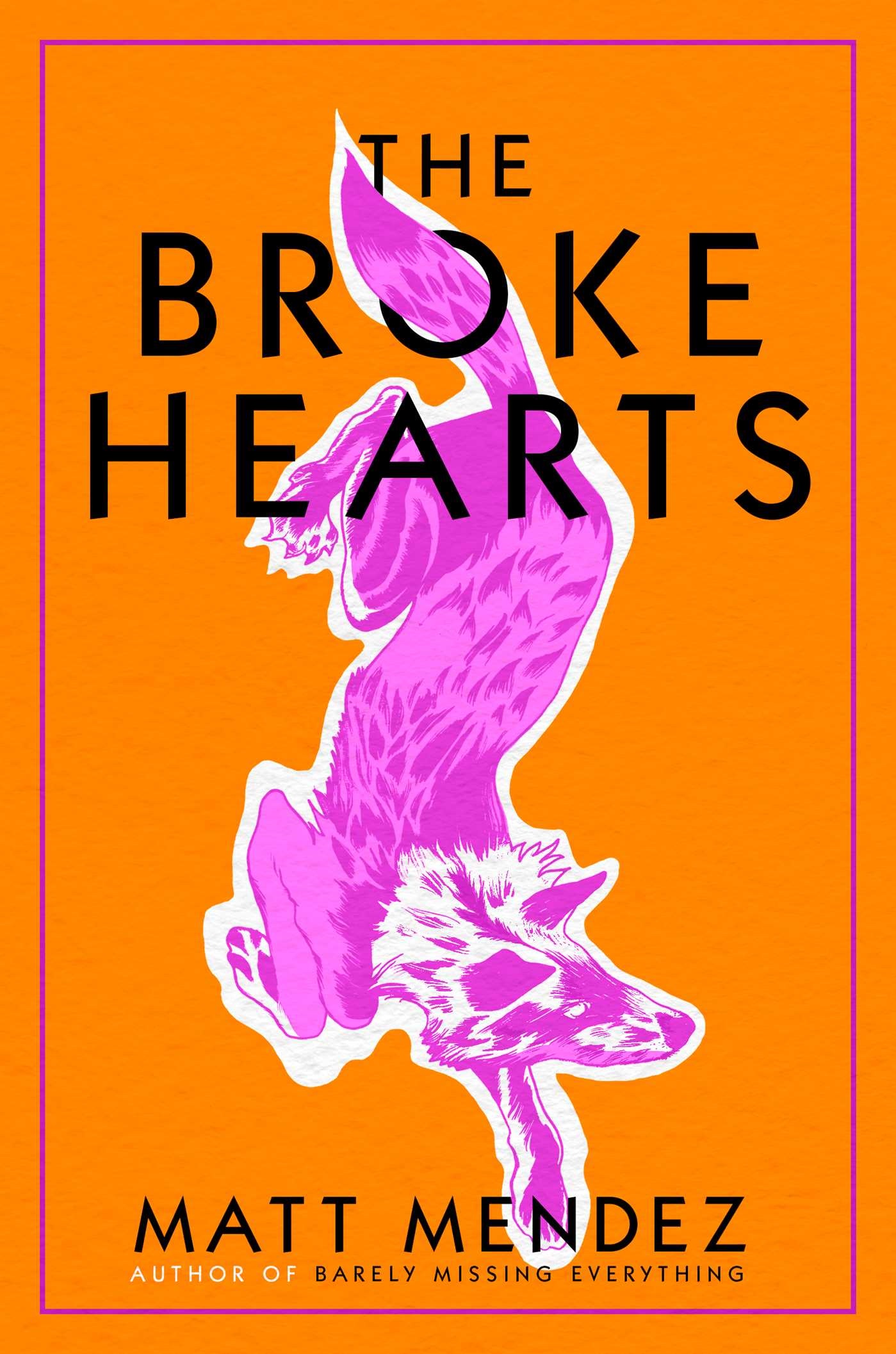 Book you're an evangelist for:
Book you're an evangelist for:
Gabi, a Girl in Pieces by Isabel Quintero. I have bought and given this book away multiple times. The voice and inventiveness of this novel always blows me away. It is one of the most alive books I've ever read.
Book you've bought for the cover:
Signs Preceding the End of the World by Yuri Herrera. The cover is mostly black, a midnight image of a mountain range spiked with saguaro cactus, and the title of the book is centered inside a full moon. The image is ghostly and matches what turns out to be a haunting book about the Mexican/American border.
Book you hid from your parents:
Every single math book, just in case they wanted me to read them.
Book that changed your life:
The House on Mango Street. Reading Sandra Cisneros's novel was the first time I ever felt like my world existed inside of a book.
Favorite line from a book:
"You want to tell a story? Grow a heart. Grow two. Now, with the second heart, smash the first one into bits." --Charles Yu, How to Live Safely in a Science Fictional Universe
I began The Broke Hearts with this epigraph, which I think shows how relevant it is to me and my work. All stories need heart, as do their writers. The bigger the better.
Five books you'll never part with:
The House on Mango Street by Sandra Cisneros. This book was my first love. I read it in college and had never identified with a book before.
The People of Paper by Salvador Plascencia. This novel is wild. There is war against sadness. A baby Nostradamus. A girl with a lime addiction. This book is a reminder that a story can be everything.
Dominicana by Angie Cruz. Ana Cancion is a character I still think about. Cruz's novel has the exact kind of impact I'm looking for in a book, in any kind of story. One where I feel changed at the end.
The Things They Carried by Tim O'Brien. Funny and absurd, brutal and beautiful. The best book about war I've ever read.
Century of the Wind (third in the Memory of Fire trilogy) by Eduardo Galeano. This Latin American history written in short, lyrical vignettes is astounding on every page, capturing the horrors and splendor of the Americas, from creation myths to the Reagan '80s. I go back to it all the time.
Book you most want to read again for the first time:
There There by Tommy Orange. The writing and construction of this book is amazing. It is so confident and subtle; everything comes together in such a powerful way. Reading it for the first time was a joy.
Book Candy
Book Candy
"Explore the Florentine Codex: A brilliant 16th century manuscript documenting Aztec culture is now digitized & available online," Open Culture noted.
---
Atlas Obscura shared "the low down on the greatest dictionary collection in the world."
---
"New (and newish) memoirs by transgender authors to discover," courtesy of the New York Public Library.
---
A book group in Venice, Calif., started James Joyce's Finnegans Wake in 1995 and just reached the final page in October. (via the Guardian)
Rediscover
Rediscover: David Ferry
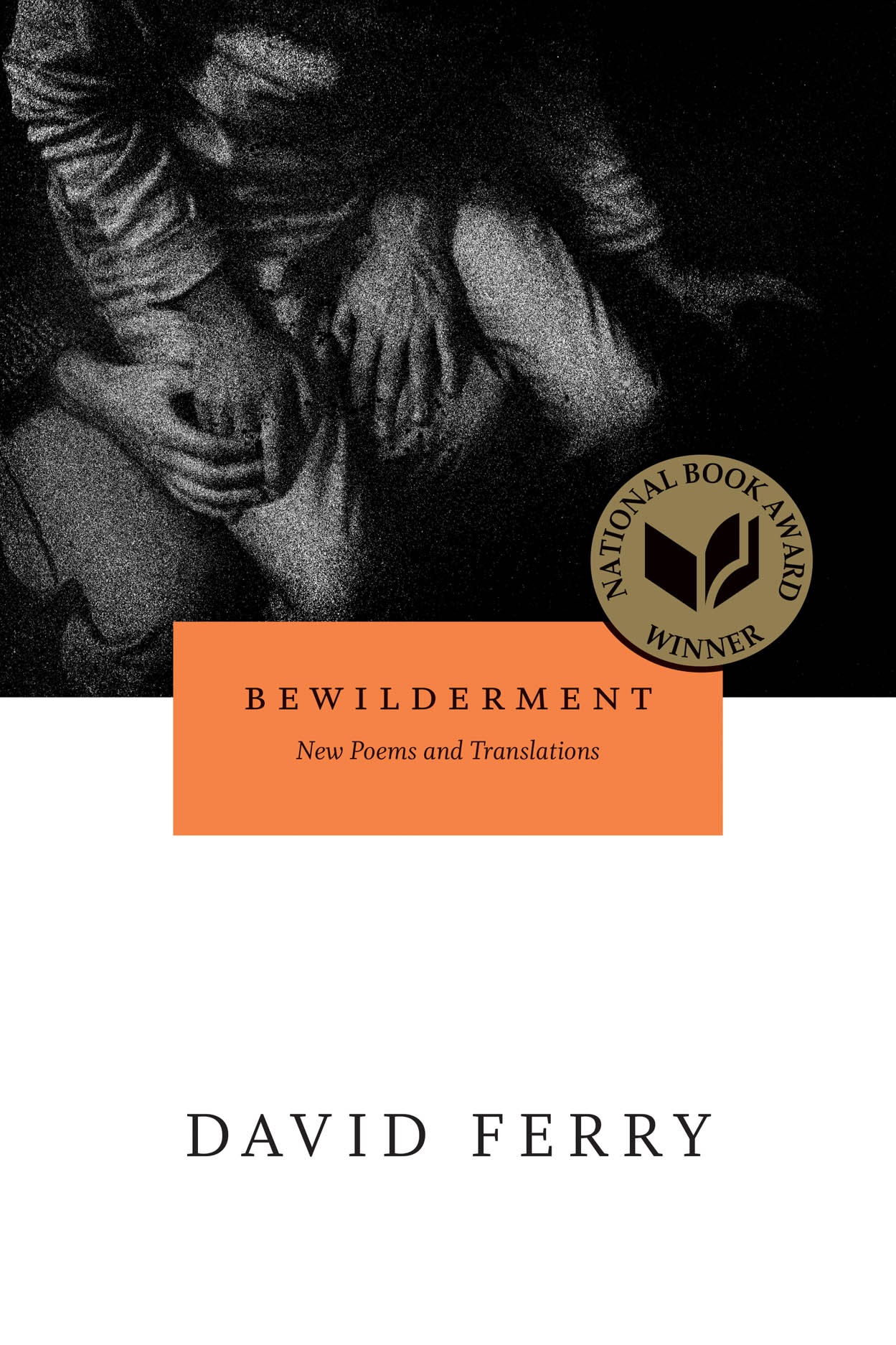 David Ferry, a poet and translator "whose direct, emotionally resonant work plumbing the chasms between the knowable and the unknowable won him broad praise and honors late in his career, including the National Book Award when he was 86," died November 5 at age 99, the New York Times reported. Ferry spent nearly 40 years teaching literature at Wellesley College, and "during that time he published just two books, both of poetry, with 23 years between them. He was admired as a critic and a teacher, but not as a poet, except within a small circle of admirers."
David Ferry, a poet and translator "whose direct, emotionally resonant work plumbing the chasms between the knowable and the unknowable won him broad praise and honors late in his career, including the National Book Award when he was 86," died November 5 at age 99, the New York Times reported. Ferry spent nearly 40 years teaching literature at Wellesley College, and "during that time he published just two books, both of poetry, with 23 years between them. He was admired as a critic and a teacher, but not as a poet, except within a small circle of admirers."
After he retired at 65 in 1989, he wrote 10 books over the next 34 years, including five of new and collected poems. Initially he translated classical texts, though he did not know Latin or Greek and lacked a grounding in classical writing. His first post-retirement book, a translation of the ancient Babylonian epic Gilgamesh (1993), was a New York Times Notable Book of the Year. He later won praise for translations of the Roman poets Horace and Virgil, including Virgil's epic The Aeneid (2017).
Ferry's reputation as a translator contributed to his poetry being at times overlooked, until he won the National Book Award in 2012 for Bewilderment: New Poems and Translations. Other works include Dwelling Places: Poems and Translations (1993), Of No Country I Know: New and Selected Poems and Translations (1999), and On This Side of the River: Selected Poems (2012). His final book, Some Things I Said, will be published in December by Grolier Poetry Press.
Ferry "spoke of living in a state of constant bewilderment--not just him, but everyone, and everything," the Times wrote. "The world is slippery, and nothing, not even words as concrete and precisely chosen as his, could capture it in full.... Even his poems were bewildered, he said, and believed his job was to help them find their way. When writing, he started with a line and worked it out from there on a path of mutual discovery, both for him and for the poem."
He revered Robert Frost and Wallace Stevens, "and like them wrote in a direct, quietly devastating style. It is not frilly or overly difficult, though in its richness it contains multitudes that reward frequent rereadings," the Times noted, adding that he "deployed metaphor sparingly and precisely, never to show off, as in his poem 'Lake Water,' an elegy to his wife, the critic Anne Ferry":
When, moments after she died, I looked into her face,
It was as untelling as something natural,
A lake, say, the surface of it unreadable,
Its sources of meaning unfindable anymore.
Her mouth was open as if she had something to say;
But maybe my saying so is a figure of speech.
Former U.S. poet laureate Robert Pinsky told the Boston Globe: "David Ferry inspired many other poets with his penetrating, unique verbal music. Also inspiring to me and many others is David's lifelong devotion to the art of poetry as a source of joyful wonder--for himself, for his friends and students, and for his readers." Bewilderment is available from the University of Chicago Press.
Read what writers are saying about their upcoming titles


